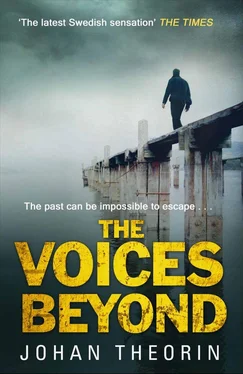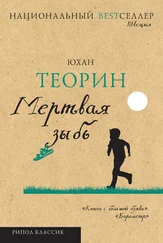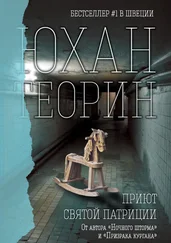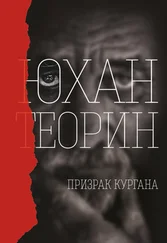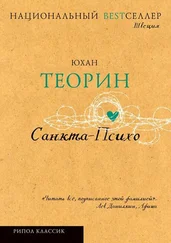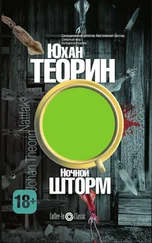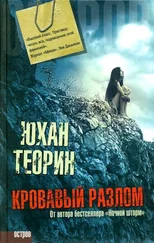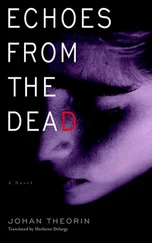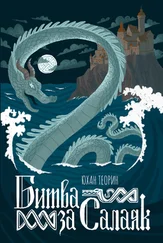Say something , Gerlof thought.
But he didn’t. He should have told Tilda about Peter Mayer some time ago, but he hadn’t got round to it. What could he say now? Perhaps it was just a coincidence that Mayer had been hit by a car just after Jonas Kloss had identified him, but...
‘We can talk more later,’ he said. ‘I have to go. John’s picking me up.’
‘Are you going on a trip?’
‘Not really — we’re just going for coffee,’ Gerlof explained. ‘With a gravedigger’s daughter.’
Not all farmers on the island had been blessed with such extensive property as the Kloss family; Sonja, the daughter of Roland Bengtsson the gravedigger, was married to a retired farmer who had owned no more than half a dozen dairy cows, a few fields of potatoes, and a straw-covered stone barn which housed a small flock of chickens. The farm had been sold, and now Sonja and her husband lived in Utvalla, in a small house on the east coast overlooking low-lying skerries with a healthy bird population. Beyond the skerries lay only the Baltic horizon, like a dark-blue stage floor stretching towards eternity. Or at least towards Russia and the Baltic states.
But Gerlof wasn’t looking at the sea as he eased his way out of John’s car. He was looking north. It wasn’t very far to Einar Wall’s cottage from here; it was probably only a few kilometres away, behind a series of inlets and headlands.
Gerlof had called Sonja and invited himself and John over for coffee. You could do that kind of thing on the island with people you knew, and he had known Sonja for years.
There were suitcases in the hallway; Sonja and her husband were flying to Majorca the following day. However, they were pleased to welcome their guests. Gerlof’s first question concerned their late neighbour.
‘No, we didn’t hear a thing that evening,’ Sonja replied. ‘We didn’t see anything either — there’s a pine forest between us.’
‘Wall was a tricky customer,’ her husband said. ‘We knew he sold fish and game, but I think he sold other things as well. If you were out that way, you often saw strange cars coming and going. The drivers always looked grim — they never waved, which isn’t a good sign.’
‘And he drank, of course,’ Sonja said. ‘I suppose that’s what killed him... His heart probably gave out in the end.’
‘So he had a heart attack?’
‘That’s what we heard — that he was sitting drinking in his boat and he collapsed in the heat.’
‘That sounds plausible,’ Gerlof said.
Silence fell around the coffee table. So far, they had just been chatting, even though the subject matter had been quite serious, but Gerlof really wanted to talk about Sonja’s father.
‘Sonja, I’m not sure whether you know this,’ he began, ‘but I worked with your father in the churchyard when I was young. It was only for a short time, but he was very kind to me.’
‘Oh — when was that?’
‘In 1931, and there was another young boy there, too, whom Roland seemed to be keeping an eye on... I think his name was Aron, Aron Fredh.’
Sonja and her husband exchanged a quick glance. It was obvious they recognized the name.
‘Aron and my father were related,’ Sonja said at last. ‘Dad looked after him from time to time.’
‘So you were also related to Aron?’
‘Distantly, yes. It wasn’t actually my father who was related to Aron’s family; my mother and Aron’s mother, Astrid, were cousins.’
Astrid Fredh. Gerlof made a note of the name.
‘But none of them is still alive?’
‘No, they’re all gone. Astrid died in the seventies; she’d left Rödtorp by then. Aron had a younger sister, Greta, but she had a fall at the home in Marnäs last year and died.’
Gerlof vaguely remembered the incident, but it hadn’t happened on his wing and, unfortunately, falls were far from uncommon among the elderly. You had to be very careful with those shiny floors and rugs.
‘Where did Aron and his family live?’ he asked. ‘On the coast?’
‘They lived over to the west... at Rödtorp, next to the Kloss family’s land. Astrid and Greta stayed there more or less until the end of the thirties, but Aron and his stepfather went to America.’
Gerlof was taken aback — not by the fact that they had gone to America, but by the relationship.
‘Stepfather? So Sven wasn’t Aron’s biological father?’
Sonja glanced at her husband once more. ‘Sven came to the island as a farmhand at the beginning of the twenties,’ she said. ‘Aron and Greta had already been born by then.’
Gerlof noticed that she didn’t mention who their real father was.
After a brief silence, John spoke up. ‘Do you happen to know where Sven and Aron went when they got to America?’
‘Goodness, I’ve no idea. It’s almost seventy years ago, after all.’
‘They didn’t write home?’
‘Not letters,’ Sonja said. ‘But there might be a postcard from them in my father’s collection... Just a minute.’
She left the room and returned with a dark-green album, which she handed over to Gerlof. It was old and worn, with gold lettering on the front: POSTCARD ALBUM.
‘My father inherited it from his father,’ Sonja explained. ‘They both collected postcards, although neither of them received very many over the years. We used to send them to Dad... Our postcards from Majorca are at the back.’
Gerlof slowly leafed through the album. He liked postcards; as a ship’s captain, he had sent many to his daughters from various harbours around Sweden.
The Spanish cards at the back were in bright colours, with blue seas and a yellow sun. As he moved towards the front of the album, the cards were older, more faded and less exotic. They featured views of ‘Gefle Esplanade’ or ‘Halmstad — Grand Hotel’.
But one of them was different, and Gerlof stopped and read the words on the front: ‘Swedish-American Line SS Kastelholm — Carte Postale ’. Beneath the text was a picture of a magnificent steamship of the type he had sometimes encountered while sailing the Baltic.
‘This could be it,’ he said, carefully removing the postcard.
There was a short message on the back, written in pencil in a sprawling hand:
Thank you for everything, Uncle Roland. We have arrived at the docks and will soon be going on board. This is a picture of the ship that will take us from Sweden to America, but we will be coming back.
Look after Mother and Greta. Goodbye.
Love from Aron
It was obviously a card from an emigrant, presumably sent from Gothenburg, but it revealed very little, apart from the fact that Aron could spell. The date was unclear, but Gerlof thought he could make out ‘1931’ over the stamp.
He put down the card. ‘Aron says they’re coming back.’
‘Yes, but they never did. And, as I said, we didn’t hear from them again. I used to visit Greta Fredh from time to time, and occasionally I would ask if she’d had a letter from her stepfather or her brother, but she never had... not a word.’
Unless of course she was lying, Gerlof thought. Out loud, he said, ‘We often heard stories about the emigrants who were successful and could send home plenty of dollars, but all those who ended up in the gutter just disappeared.’
Sonja nodded, looking a little upset. ‘I just hope they had a better life in the USA, because the place they lived in at Rödtorp was just dreadful — little more than a grey shack. And, of course, Sven never had any money. He was a semi-invalid; his foot had been crushed.’
‘So how did he make a living?’
‘He did a bit of everything, as people who didn’t have a farm of their own had to do back in those days. He worked as a miller’s labourer, and went around the flour mills in the area.’
Читать дальше
